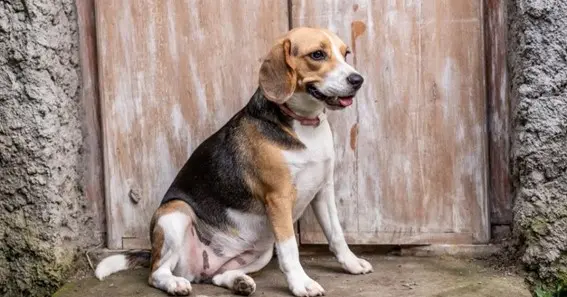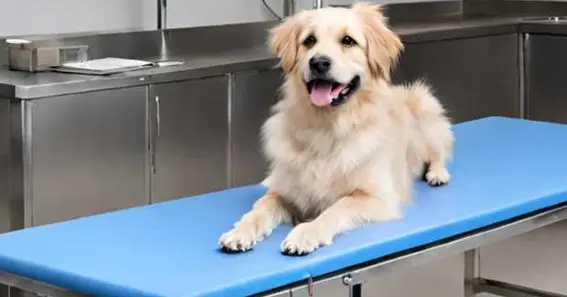How often do you express dog glands? Some dogs have their anal glands physically expressed a couple of times a year, and some dog owners bring their dogs in every month (or more often) if their dogs have been having problems that keep happening.
How Often Do You Express Dog Glands?
Many dog glands work on their own without any help. But some dogs may need to be expressed by hand a few times a year. For dogs with problems that keep happening, expressions may need to be done once a month or even more often. The number of times a dog’s anal glands are expressed depends on what the dog needs.
Here in this post about how often do you express dog glands we have covered topics related to it.
Also Read N: Do You Know How Often To Water Mums? And Tips For Watering Mums
How To Help Dogs Express Glands Naturally?

Making stools that are firm and bulky is the best natural way to help dogs release their anal glands. Several dietary supplements and improvements can help you do this. If you want to help your dog’s anal glands feel better, feed them a diet high in fibre and get them moving to start digesting.
Supplements For Fibre
When it comes to helping your dog’s swollen anal glands, fibre supplements will be your first line of defence. Small types of dogs or dogs that often have problems with their anal glands being full should take fibre supplements every day. Dogs that already have signs of anal gland impaction can get more fibre in their stools with a vet-strength fibre supplement.
Fibre-Rich Ingredients
Natural, high-fibre components are essential for natural gland function in dogs. Fibre-rich foods can help keep stools bulky and firm, which makes it more likely that your dog’s anal glands will be released every time he goes to the toilet. Find a mix of soluble and insoluble fibre in dog food, like Apple, Flax Seed, Rice Bran, and Pumpkin. This will help keep their anal glands healthy.
Hydration
Fibre will only help if your dog drinks enough water. Clean, fresh water helps move roughage through the digestive system and encourages motility, which means more poops and natural expression of the anus glands. Make sure your dog drinks about 1 ounce of water for every pound it weighs daily.
Daily Exercise
Moving around is one of the best ways to help your stomach! Moving food from the mouth to the anus is called motility, and it works better when your dog walks regularly. That’s because your dog’s gut system works better when they’re moving! Every day, take them for walks, let them play inside or outside, swim, or go camping. Anal gland problems are more common in overweight dogs, so keeping your dog at a healthy weight through food and exercise is another reason to keep them busy!
Take Care Of Diarrhoea Symptoms
One of the main reasons for anal gland impaction is small poops and diarrhoea, so make sure you treat these problems right away! Adding a fibre product with probiotics to your dog’s food can help straighten out an upset gut and make your pet’s stools bigger. It is possible to help dogs naturally release their anal glands when they have diarrhoea by giving them this high-quality supplement.
Also Read P: What Is Resin And Its Variants?
What Indicators Indicate My Dog’s Anal Glands Need Stretching?
If your dog is having problems with their anal glands, these are some signs:
Scooting
It’s the most common sign that something is wrong with the anal gland. Moving their butt across the floor may be a way for your dog to ease pressure on their anal glands.
Too Much Licking
Your dog’s anal glands may be full or sick if they lick under their tail a lot.
Leaking Or Staining
Urine or fur can get stained by anal glands that leak. It smells strongly of fish and is generally dark brown.
Problems Defecating
Anal gland pain might make a dog strain when going to the potty.
Are you worried about this question how often do you express dog glands keep reading this post.
Are There Dog Anal Gland Disease Preventative Methods?

There are ways to prevent anal gland issues in dogs.
Check Your Dog’s Fibre Intake:
Fibre keeps stool complex and bulky, which makes it more likely that your dog will naturally empty their anal glands.
Avoid Feeding Animals Table Scraps:
Giving your dog the improper rewards will loosen their stool, making anal gland expression difficult.
Keep Your Dog Fit:
Overweight dogs have more outstanding anal gland issues. Make sure your dog gets adequate exercise and appropriate food.
Monitoring:
Clogged anal glands might cause disease. If your dog has anal gland issues, take them to the vet. If necessary, express your dog’s anal glands during cleaning.
If you are looking for an answer on How often do you express dog glands this post must be your last destination.
Conclusion
Last how often do you express dog glands here is your answer. You can physically press on anal glands at home or a veterinary hospital, but only if your vet has taught you how to do it. Some people with advanced anal sac disease may need to use manual expressions, but most of the time, it’s best to let the anal glands empty naturally through bowel movements.
FAQ
Why Must I Press My Dog’s Anal Glands At Home?
If your dog’s anal glands don’t empty, you may need to teach it to leak at home.
What Can I Do At Home To Relocate My Dog’s Anal Glands?
You can gently squeeze each anal sac to release your dog’s anal glands from the inside or outside. It would assist to have someone hold your dog down.
What Indicators Indicate My Dog’s Anal Glands Need Stretching?
Swollen anal glands cause dogs to scoot, lick, or strain when going to the toilet.
What Should I Do If My Dog’s Anal Glands Are Infected Or I Don’t Feel Secure Releasing Them?
An experienced groomer or vet can shave the anal gland. Take your dog to the vet for anal gland disease.
When Should I Clean My Dog’s Anal Glands?
Anal gland removal isn’t necessary for most dogs. Dogs whose anal glands need to be sucked should have this done every three to four weeks.
Sources:
https://riverroadveterinary.com/how-to-express-your-dogs-anal-glands/
https://www.vetniquelabs.com/pages/anal-gland-issues-in-dogs
https://www.hudsonveterinaryhospital.com/how-often-should-a-dogs-anal-glands-be-expressed/










